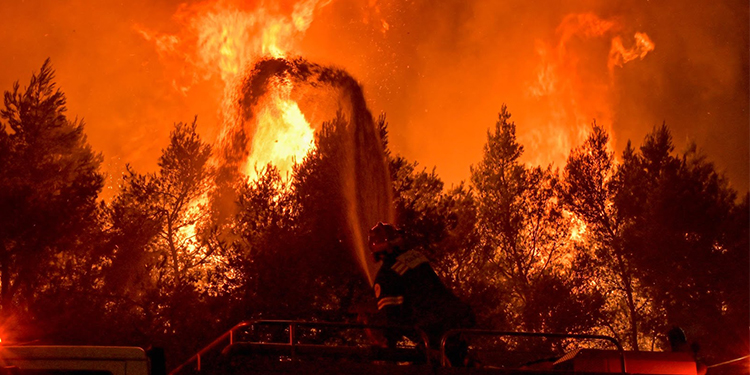Facing intense criticism for his administration’s handling of wildfires and floods that wreaked havoc in Greece this past summer, Prime Minister Kyriakos Mitsotakis has announced plans to bolster resources aimed at mitigating the impacts of climate change.
“We find ourselves in a kind of peacetime war,” declared the nation’s leader during a speech at the Thessaloniki International Fair in the northern region.
Throughout July and August, numerous parts of Greece were ravaged by wildfires, resulting in a death toll of at least 26 individuals. This tragedy was swiftly followed by a series of floods in early September in Thessaly, a central region of Greece, which claimed the lives of 17 people.
Mitsotakis emphasized that “addressing the climate crisis requires the mobilization of our entire society.” During a subsequent press conference at the fair, he outlined several key initiatives aimed at confronting these challenges.
The conservative Prime Minister, who secured re-election in June, pledged to double the special reserve for natural disasters to €600 million (equivalent to 640 million dollars) starting in the next fiscal year.
Additionally, he unveiled plans to offer a 10% property tax reduction for homeowners who insure their properties against natural disasters and is considering the possibility of making such insurance coverage mandatory.
Facing fierce criticism from both the opposition and flood victims, who decried the slow response of emergency services and an apparent lack of readiness for severe weather events, Mitsotakis asserted that he had “heard the frustration of our citizens.”
He also acknowledged the existence of a certain “confusion of responsibilities” among state agencies responsible for responding to heavy rainfall, as well as a common tendency to shift blame onto other services.
In the wake of the Thessaly floods, shortcomings in cooperation between the military and civil protection services were evident, and media coverage of residents seeking refuge on their rooftops while awaiting assistance damaged the government’s reputation. Reports from affected citizens, who felt abandoned in their time of need, further exacerbated the situation.
Experts also raised concerns about Greece’s lack of proactive wildfire prevention, with such events recurring regularly during the summer months regularly.










